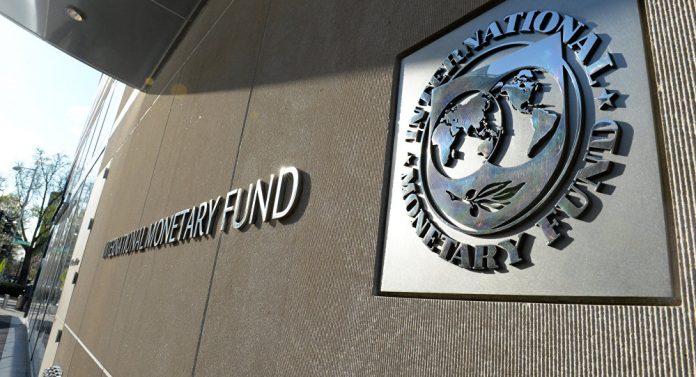LAHORE
According to IMF Pakistan’s economic outlook seems to be favorable, real GDP is estimated at 5.3 percent in FY 2016/17. IMF anticipates that the GDP will strengthen to 6 per cent amid the medium term because of paced China Pakistan Economic Corridor (CPEC) investments, improvements in energy sector, and due to announcement of growth-supporting structural reforms.
According to IMF’s conclusions, inflation has been gradually increasing but remains contained, and the financial sector has remained sound.
However, according to IMF’s website, macroeconomic stability gains made under the 2013-16 EFF-supported programme have begun to erode and could pose risks to the economic outlook.
The IMF sources further delineated that fiscal consolidation has slowed, with the 2016/17 budget deficit target of 4.2 per cent of GDP (authorities’ latest projection) likely to be exceeded. The current account deficit has widened and is expected at 3 per cent of GDP in 2016/17, driven by quickly rising imports of capital goods and energy.
Also, foreign exchange reserves have declined in the context of a stable rupee/dollar exchange rate. On the structural front, while the successful implementation of business climate and financial inclusion reforms has continued, some renewed accumulation of arrears in the power sector has been observed, and financial losses of ailing public sector enterprises continue to weigh on scarce fiscal resources.
According to IMF, key external risks include lower trading partner growth, tighter international financial conditions, a faster rise in international oil prices, and over the medium term, failure to generate sufficient exports to meet rising external obligations from large-scale foreign-financed investments.
The IMF Directors of the executive board of IMF commended the Pakistani authorities for strengthening macroeconomic resilience during their 2013–16 Fund‑supported program.
The IMF Directors agreed that the growth outlook remains favorable, but noted that policy implementation weakened recently and macroeconomic vulnerabilities are reemerging. Against this backdrop, Directors called on the authorities to safeguard the macroeconomic gains of recent years through continued implementation of sound policies, and to continue with structural reforms to achieve higher and more inclusive growth.
The IMF Directors encouraged the authorities to strengthen fiscal consolidation. They noted that the FY 2017/18 budget aims at further gradual consolidation, albeit at a slower pace than targeted under the Fiscal Responsibility and Debt Limitation (FRDL) Act, and will likely require additional revenue measures in light of recent revenue under performance. Directors emphasized that sustained fiscal consolidation over the medium term, in line with the FRDL Act, is critical to strengthen economic resilience, safeguard fiscal sustainability, and limit pressures on the current account and international reserves. To this end, Directors recommended mobilizing additional tax revenues by broadening the tax base and strengthening tax administration; and enhancing the composition of public spending by containing the wage bill’s growth, further reducing electricity subsidies, and increasing priority social spending. They also recommended strengthening the national fiscal federalism framework and public debt management.
The Directors stressed the importance of maintaining a prudent monetary policy stance to preserve low inflation. They noted that monetary policy has been appropriately accommodating, and urged the State Bank of Pakistan (SBP) to remain vigilant and be ready to tighten it in case inflationary pressures emerge or foreign exchange market pressures intensify.
Directors from IMF called on the authorities to allow for greater exchange rate flexibility—rather than relying on administrative measures—to help reduce external imbalances and bolster external buffers.
In this regard, they welcomed the authorities’ commitment to remove, within one year, the cash margin requirement for imports of consumer goods, which constitutes an exchange restriction and multiple currency practice.
The IMF Directors welcomed ongoing progress in strengthening central bank autonomy, and called for implementing the remaining recommendations from the 2013 Safeguards Assessment and to phase out government borrowing from SBP.
The IMF Directors saw many of the above mentioned measures as preconditions for moving to an inflation targeting regime in the medium term.
The IMF Directors stressed that further progress in the structural reform agenda is needed to make growth more inclusive and reduce poverty. They welcomed the progress in fostering financial inclusion and implementing the business climate reform strategy, and encouraged the authorities to press ahead with these efforts. Directors also recommended further strengthening social safety nets.























